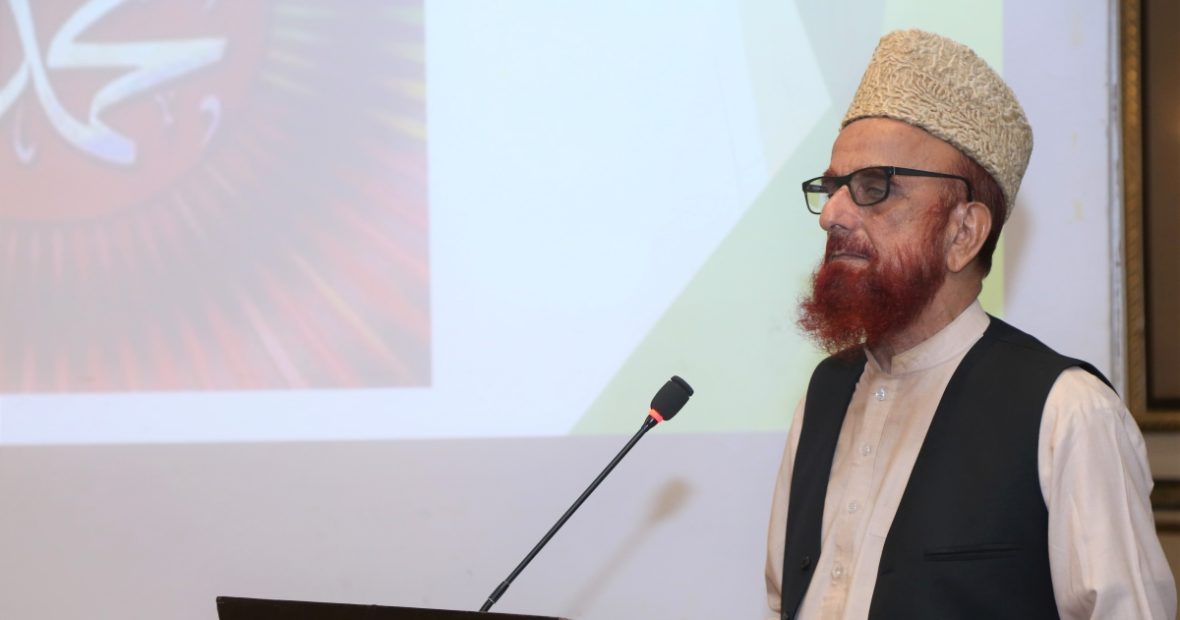Islam is perhaps one of the most misrepresented religions in the world – even when it comes to matters of humanitarianism. Hoping to address certain misconceptions, the International Committee of the Red Cross Pakistan (ICRC), in collaboration with Institute of Policy Studies (IPS) Islamabad co-organized a Call for Papers on the theme of “Islam & Humanitarian Action: Prospects & Challenges”. Nine papers were selected and a two-day national conference was co-organized from 24 – 25 November 2021 in Karachi, Pakistan, for their presentations.
Attending the conference were renowned religious scholars, academics and leaders of faith-based humanitarian organizations who discussed and listened to topics, such as “Principles of Humanitarian Action from a Red Cross and Red Crescent Perspective”; “Islam and Neutral Humanitarian Action”; “Humanitarian Work in Pakistan: Prospects and Challenges”; and “Islam and Contemporary Humanitarian Organizations”.
Mufti Munibur Rahman, President of Tanzeemul Madaaris Pakistan, stated in his speech that there are many misperceptions surrounding Islam and Muslims. It is believed by many that they do not deliver neutral humanitarian services. Yet, Islamic history shows that the Prophet of Islam sent humanitarian aid to those, even his enemies, afflicted by drought. He further added that Islam has always stressed to help those in need without consideration of creed, race or colour.
Other speakers, including leaders of faith-based humanitarian organisations, chimed in, stating that Islamic humanitarian organizations deliver aid purely based on humanity and do not look at religion when working in communities who are in need of help.
Concluding the conference, Dr Ziaullah Rahmani, ICRC Regional Advisor for Islamic Law & Jurisprudence, reiterated that the aim of the ICRC’s engagement with Islamic circles is to create an atmosphere of mutual learning and trust. As the ICRC is an impartial, neutral and independent organization with an exclusive humanitarian mandate, it is encouraging to see that Islam supports the same overlapping principles for humanitarian action, and such interaction will continue to strengthen the cooperation and promotion of protecting those who are most vulnerable.
Among the participants who attended the two-day event were:
- Qari Hanif Jalandhari, Secretary General of Wifaqul Madaaris Pakistan
- Yaisn Zafar, Secretary General of Wifaqul Madaaris al Salafiyya Pakistan
- Mufti Abdur Raheem, President of Majma ul Uloom al Islamia
- Zubair Ashraf Usmani, son of Grand Mufti, Maulana Rafi Usmani of Darul Uloom Karachi
- Ahmad Binori, Deputy Head of Jamiah Binori Town Karachi
- Anis Ahmad, Vice Chancellor of Ripha International University Pakistan
- Mohsin Naqvi, renowned Shiah intellectual
- Shuja Uddin Shaikh, Amir of Tanzeem e Islami Pakistan
- Abdul Shakoor, President of Al Khidmat Foundation Pakistan
- Umair Hasan, Country Director of Islamic Relief World Wide
- Dr Shahida Nomani, President of Shuoor (welfare organization)
- Khalid Rahman, Chairman of IPS

